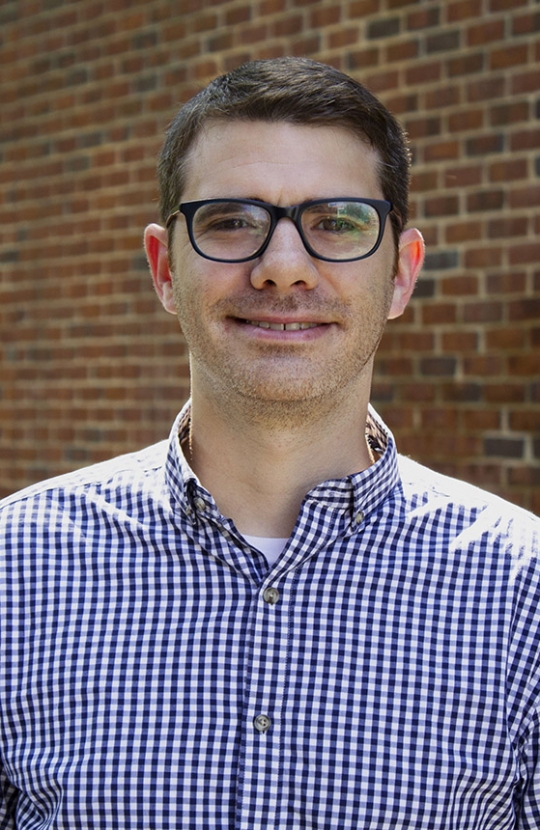Daniel Wisneski, Ph.D.
Associate Professor of Psychology
About Dr. Wisneski
After earning my B.A. in psychology from Ohio State, I worked for two years doing research in the private sector. I then lived in Chicago for seven years while I completed my graduate training in social and personality psychology. Finally, I started at Saint Peter’s University as an assistant professor in 2014.
“My primary goals as a teacher center on three themes. First, I attempt to pass my enthusiasm for psychological science on to my students and to foster an appreciation and excitement about the field of psychology. Second, I place a heavy emphasis on teaching through research. Finally, I attempt to create a learning environment that combines high standards with a feeling of acceptance and support where students feel that they are able to achieve their potential.”
“My primary goals as a teacher center on three themes. First, I attempt to pass my enthusiasm for psychological science on to my students and to foster an appreciation and excitement about the field of psychology. Second, I place a heavy emphasis on teaching through research. Finally, I attempt to create a learning environment that combines high standards with a feeling of acceptance and support where students feel that they are able to achieve their potential.”
Research Interests
Broadly, my research explores how people’s moral beliefs change over time, as well as how people’s sense of morality impacts their thoughts, feelings, and behavior.
Student Organizations and Clubs
Career & Accomplishments
Degrees
-
•University of Illinois Chicago, Ph.D.
-
•University of Illinois Chicago, M.A.
-
•Ohio State University, B.S.
Publicatios
Moral punishment in everyday life
W. Hofmann, M.J. Brandt, D.C. Wisneski, B.Rockenbach, L.J. Skitka – Personality and Social Psychology Bulletin, 2018
Attitude moralization: Probably not intuitive or rooted in perceptions of harm
L.J. Skitka, D.C. Wisneski, M.J. Brandt – Current Directions in Psychological Science, 2018
The structure of political ideology varies between and within people: Implications for theories about ideology’s causes
G.S.Morgan, D.C. Wisneski – Social Cognition, 2017
Moralization through moral shock: Exploring emotional antecedents to moral conviction
D.C. Wisneski, L.J. Skitka – Personality and Social Psychology Bulletin, 2017
Utopian hopes or dystopian fears? Exploring the motivational underpinnings of moralized political engagement
L.J. Skitka, B.E. Hanson, D.C. Wisneski – Personality and Social Psychology Bulletin, 2017
Moralization and the 2012 US presidential election campaign
M.J. Brandt, D.C. Wisneski, L.J. Skitka – Journal of Social and Political Psychology, 2015
Morality in everyday life
W. Hofmann, D.C. Wisneski, M.J. Brandt, L.J. Skitka – Science, 2014
Vicarious revenge and the death of Osama bin Laden
M. Gollwitzer, L.J. Skitka, D.C. Wisneski, A. Sjöström, P. Liberman, S.J. Nazir, B.J. Bushman – Personality and Social Psychology Bulletin, 2014
The expulsion from Disneyland: The social psychological impact of 9/11.
G.S. Morgan, D.C. Wisneski, L.J. Skitka – American Psychologist, 2011
Moral conviction and emotion
L.J. Skitka, D.C. Wisneski – Emotion Review, 2011
Moral and religious convictions and intentions to vote in the 2008 presidential election
G.S. Morgan, L.J. Skitka, D.C. Wisneski – Analysis of Social Issues and Public Policy, 2010
Gut reactions: Moral conviction, religiosity, and trust in authority
D.C. Wisneski, B.L. Lytle, L.J. Skitka – Psychological Science, 2009


